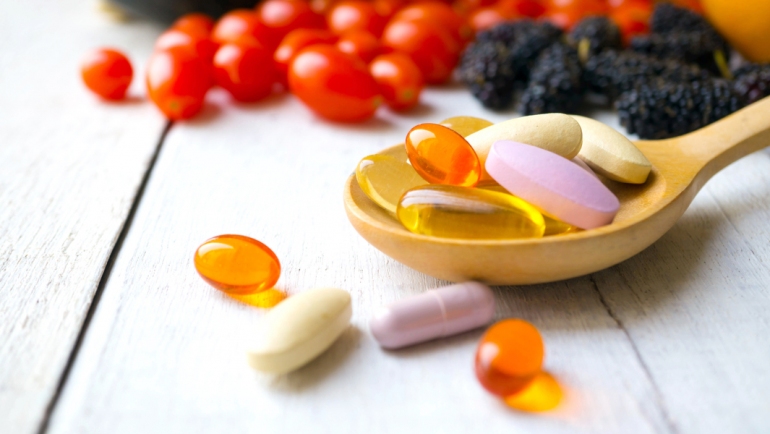How to Naturally Get Rid of Acne
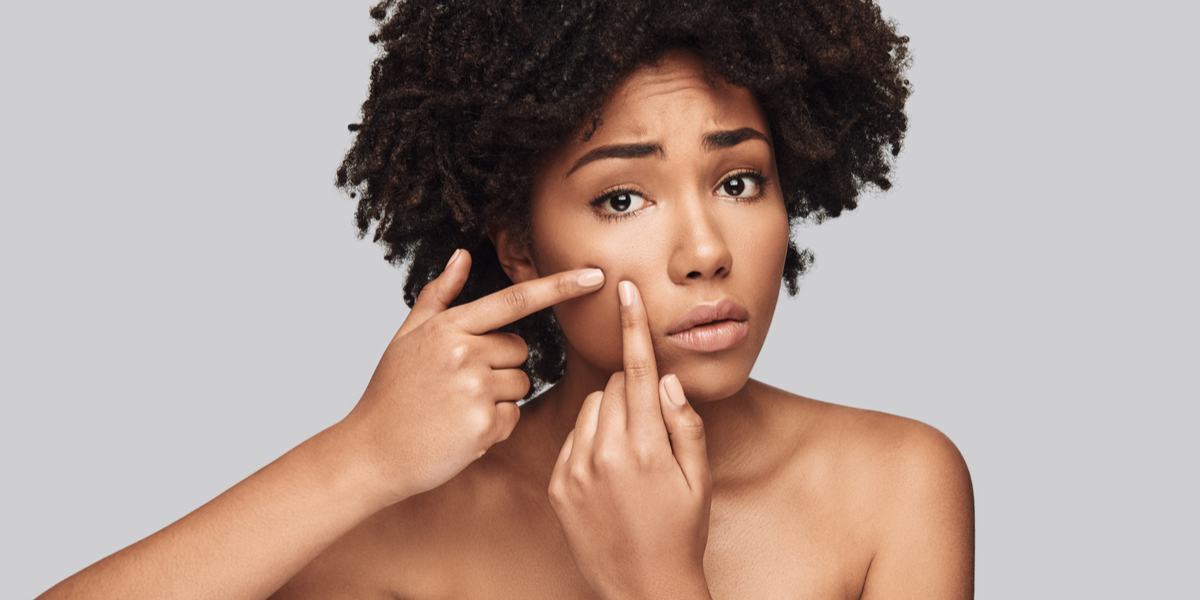
Many have tried a multitude of ways on how to get rid of acne. The human skin has millions of tiny pores. Due to their exposure to the open air, pores are clogged with oil, dead skin cells, bacteria, and microbes.
When this happens, inflammation may develop. This is more commonly known as a pimple. However, if they occur frequently and in multiple areas, this can develop into the common acne.
Although it isn’t a life-threatening condition, acne-prone skin can cause both emotional and physical distress. Severe conditions can often be painful and sensitive. Not to mention, inflamed and scarring pimples can affect your self-esteem and spike anxiety levels.
There are many anti-acne skincare products that could help, including home remedies. Many chemicals are often harmful to the skin, and if you’re not careful, using products may do more harm than good. This article hopes to shed light on the more natural ways on how to get rid of acne.
What Causes Acne
The American Academy of Dermatology lists a few ways to help manage acne. According to them, this skin condition is the most common not just in the United States but everywhere else. Though teenagers who are going through puberty are most susceptible, acne can affect people of all ages. People with oily skin are said to be more prone to developing this condition.
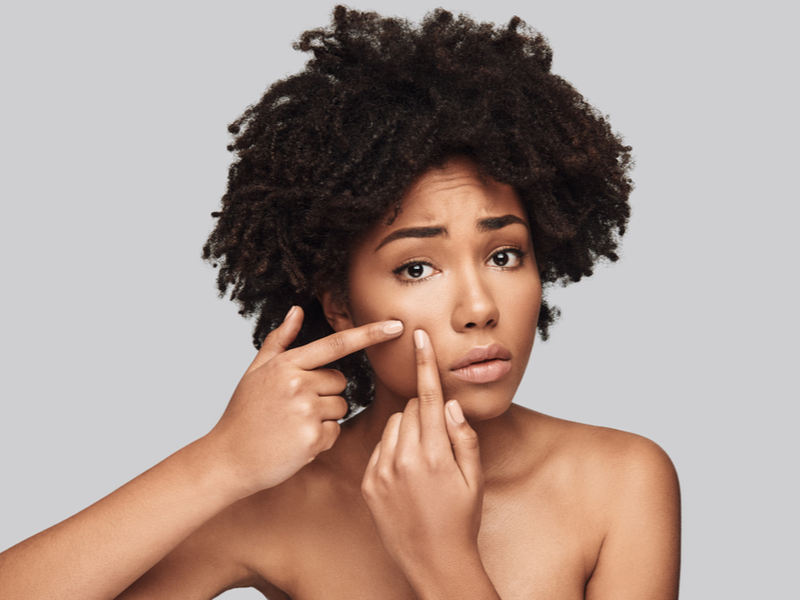
Acne occurs when there is a buildup of dirt and sebum that clogs that skin’s pores. For some, this is a hygiene issue of not washing their faces enough, and for others, it could be due to their natural-born skin. The quality of air the skin is exposed to can also cause this condition. Either way, acne is something that has long plagued for a very long time.
A good skincare routine may help but cystic acne can be persistent. The inflammation may die down for a few days and then come back again in full force. Dermatologists may prescribe strong medications but the side effects don’t often sit well with many.
Acne scarring is also a dilemma as they often leave narrow bumps and uneven skin texture in the long run.
How do You Reduce Acne?
Many opt for more natural ways of getting rid of acne nowadays. From tea tree oil to cannabis by-products to baking soda, there are dozens of organic home remedies that have worked for many.
A word of caution, though, as no two people have the exact same skin type— be careful of what you put on your face. What works for others may not work for you. You may want to seek medical treatment from professional and licensed dermatologists if your acne bothers you too much.
For many women, acne is usually also a sign of the start of their monthly menstruation cycle. Sudden onset of acne may also be a signal for an underlying disease, so do get checked out if you feel something out of the ordinary.
Natural Ingredients that Remove Acne
How can you get rid of acne? There are many acne-fighting, oil-free remedies that don’t require weekly trips to the spa. The most famous ones are herbs and plants that mainly combat inflammation and bacteria buildup. They come in the form of creams and gels, essential oils, pill supplements, and other forms of topicals.
Since ancient times, people have crushed, wrung dry, and made all kinds of concoctions out of nature’s gifts. From flowers to roots to leaves and stems, skin topicals have been the rage for many millennia. For a time, medical experts tried to tell people to stay away from unverified plant extracts as they could be harmful to the skin.
In recent years, however, the Korean skincare industry has skyrocketed to popularity. Their signature products? All-natural, gentle, and hydrating ingredients. This includes many plants and herbs that are said to be good for the skin.
Nowadays, many opt for this more organic way to get rid of acne.
This is also because many chemical exfoliants and ointments may have adverse effects like skin irritation and dryness. Gentle exfoliants could work, especially ones that are non-abrasive to the skin. However, while there are a lot of natural acne remedies out there, only a handful are scientifically proven to help.
CBD Oil
Cannabidiol (CBD) is a cannabinoid that comes from hemp plants. Unlike its popular co-compound THC, CBD is non-psychoactive. This makes it a popular organic supplement among the health community.
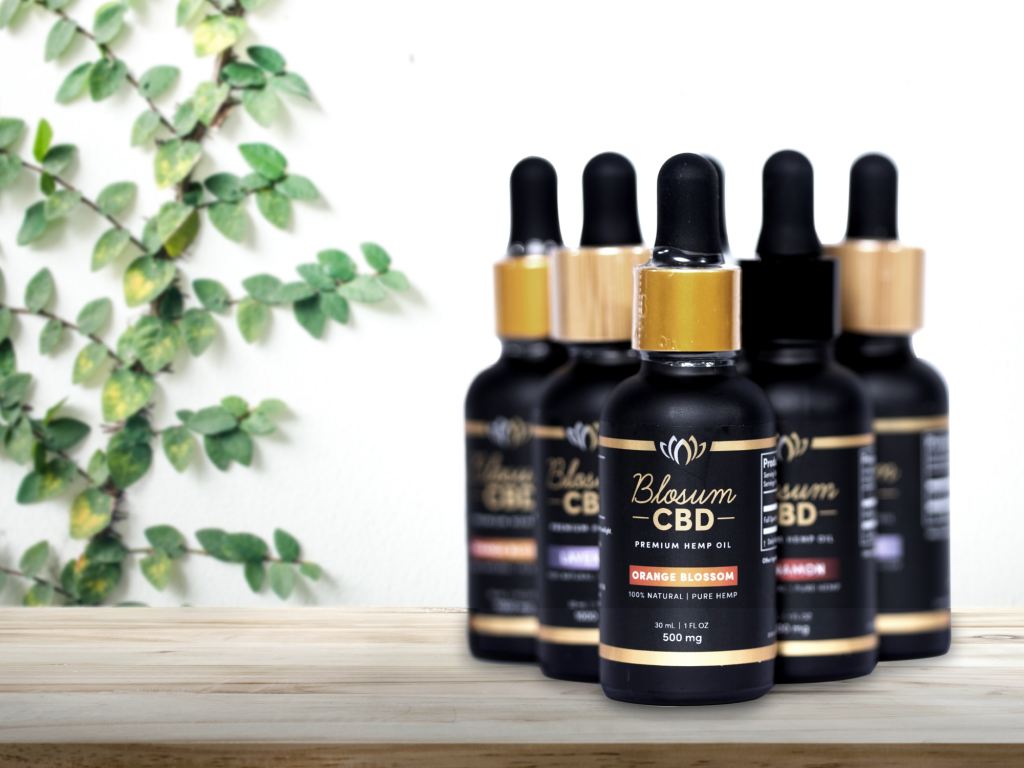
Some of the potential benefits attributed to using this hemp extract is reducing inflammation, relieving pain, soothing anxiety, promoting better sleep, and managing skin problems.
So is it an effective way to get rid of acne? There are studies that suggest CBD oil can be good for treating acne and other skin conditions. Most opt for creams and gels when treating skin conditions, while others take capsules for their long-term vitamin routine.
CBD is also known for its anti-inflammatory properties. This is probably its greatest potential when treating acne, as it could help relieve swelling and the pain that comes with it. Experts found that the molecular structure of CBD is similar to those of common over-the-counter nonsteroidal anti-inflammatory drugs or NSAIDs.
Stress can also be an underlying cause of acne. The best CBD products could help with that as the cannabinoid may relax consumers.
The hemp botanical compound also has antibacterial and antifungal effects. These could help reduce acne development from bacteria and other skin pollutants that could clog pores.
Zinc Supplements
People take supplements containing zinc to boost their immune system, promote wound healing, and help reduce inflammation. As such, studies have suggested that it could be an effective treatment for acne.
Experts also found that people suffering from certain types of acne have lower levels of zinc in their blood.
Zinc is available in many forms, including whole grains, red meat, poultry, beans, nuts, and dairy products. Medical experts suggest up to 11mg of the mineral daily is good for the body. Taking up to 40mg is still considered safe, especially for those who have high cholesterol levels as zinc may be able to help.
Supplements aren’t your only option if you want to treat acne with zinc. There are topicals that are specially formulated to contain the mineral. This can be your best option if you don’t feel like adding an oral pill to your routine.
Fish Oil
Fish oils contain omega-3 fatty acids that may be highly beneficial to the body. Lowering blood pressure, reducing triglycerides, and lessening the risk of heart attacks are only some of these supposed benefits. Fish oils also contain eicosapentaenoic acid (EPA) and docosahexaenoic acid (DHA).
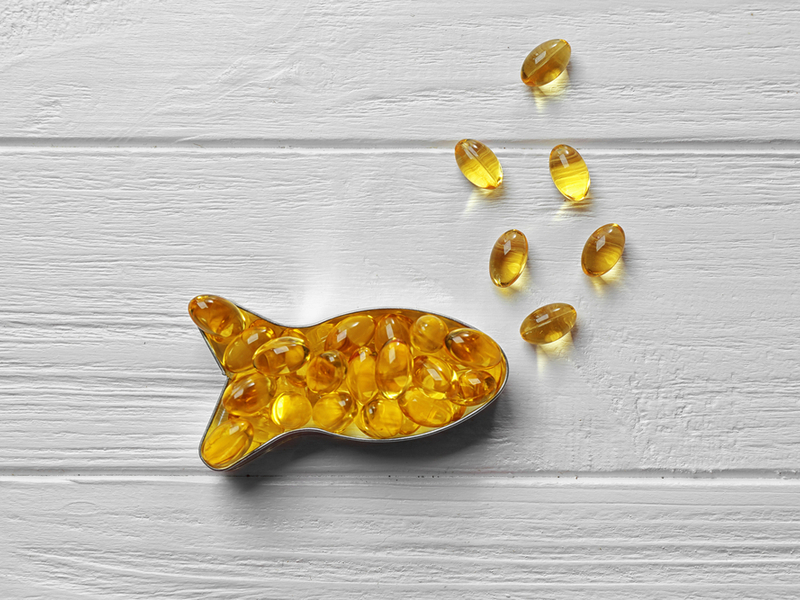
Studies show that EPA can help manage skin sebum production. This, in turn, could help prevent pimples from breaking out and help the skin maintain hydration. EPA and DHA could also help decrease factors that may trigger inflammation.
While fish oil enthusiasts usually take the supplement for its physiological benefits, there have been some who found it effective in getting rid of acne.
Its anti-inflammatory properties may help acne breakouts be more manageable. These supplements usually come in softgel form but there are also foods that are rich in omega-3 fatty acids. These include fresh salmon, tuna, sardines, walnuts, chia seeds, and ground flaxseeds.
Aloe Vera
Famous for its hydrating properties, aloe vera has become a staple in beauty products. In its raw form, the plant has thick stalks that has contains a clear gel inside once you peel off the outer layer. Many also use it for hair masks, body lotion, and even add it to shakes and other foods. It can be grown anywhere, including your own backyard.
As a topical, aloe vera gel can help fight bacteria, reduce inflammation, and speed up wound healing. This makes it a viable option for the treatment of acne and other similar skin conditions. Beach and swimming enthusiasts also vouch for the plant’s soothing effects on sunburns and rashes.
Many beauty companies usually formulate products with aloe vera. Mixing the plant with other compounds that work well with seems to be more effective than simply using it alone. Studies are limited on this but many can vouch for its hydrating properties.
Witch Hazel
Witch hazel (scientific name: Hamamelis virginiana) is a shrub that is native to the United States. Native Americans have used it for centuries to treat skin ailments and conditions. It has anti-bacterial and anti-inflammatory properties that make it effective as a topical.
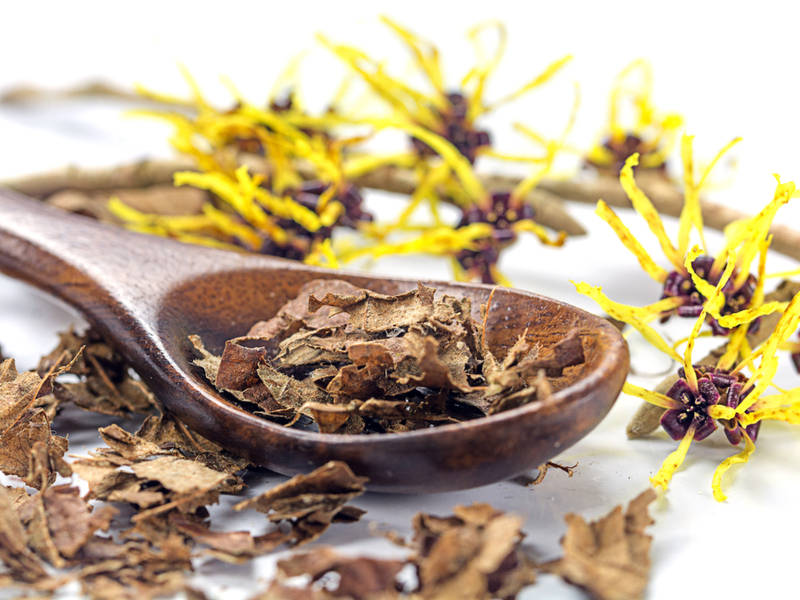
It also acts as a good moisturizer, even for sensitive and acne-prone skin. This is because it is much more gentle and soothing compared to other chemical-based astringents.
Plenty of creams and ointments in your local drugstore now claim to include witch hazel in its main ingredients. There has been a demand for witch hazel beauty products in recent years. These include toners, mists, and facemasks.
Witch hazel may be good for noninflammatory acne such as an abundance of blackheads and whiteheads. It could help minimize the appearance of pores which give the skin a smoother, more even texture and look.
How to Use Natural Ingredients for Acne
Acne is more common than you think. In fact, there have been several movements of embracing acne-prone skin as part of your natural beauty. There is nothing to be ashamed of if you are suffering from this skin condition, but there is also nothing wrong if you intend to have it treated.
Conventional treatments might work for you, but if they don’t, you may want to try natural ingredients like the ones listed above instead.
There is no universal solution for great skin. What works for many might not work for you, but this does not mean that nothing will work best for your skin. Whatever product you intend to use, whether chemical or natural, pay close attention to your skin and body’s reaction. It is also best to consult experts first before trying anything foreign.
Potential Side Effects
The treatment of acne using natural ingredients needs a lot more research before anything conclusive can be confirmed to consumers.
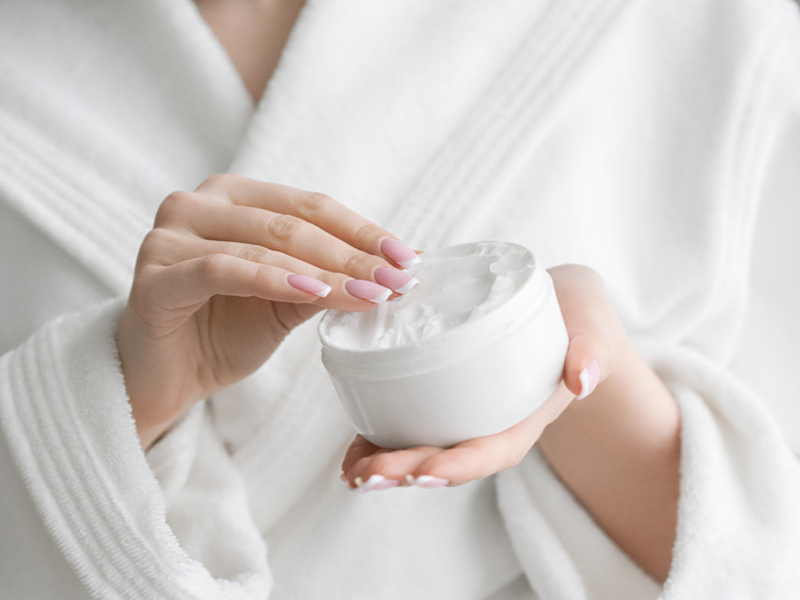
However, what scientific findings there are assert that there is great potential in using herbal and all-natural compounds for treating skin conditions. Not to mention, the promising accounts of long-term users of these kinds of products.
A word of caution from beauty experts though, not every natural cosmetic is the better choice. Many natural ingredients can cause adverse skin reactions like itchiness and irritation. Some of these include oils like lavender, tea tree, citrus, and strong herbs like cinnamon.
Opt for soothing and calming botanical ingredients instead, such as aloe vera, calendula, and vitamin E.
The Food and Drug Administration (FDA) has not approved nonprescription topicals. As such, it is best to be wary and do your research especially for popular but not dermatologically-tested acne ointments, cleansers, and other skin products. Be sure to read labels that clearly state the ingredients and look up potentially harmful chemicals that may do your skin harm.
Is CBD Legal? Hemp-derived CBD products (with less than 0.3 percent THC) are legal on the federal level. Moreover, these statements have not been evaluated by the Food and Drug Administration. This product is not intended to diagnose, treat, cure, or prevent any disease and products that have not been FDA approved. Likewise, you must be at least 21 years old to purchase these products. Talk to your physician or medical doctor for additional information.



